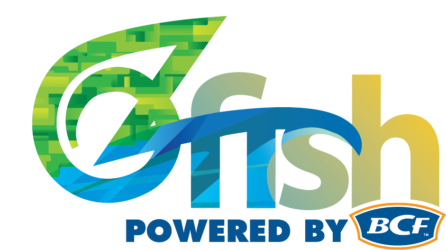Tamworth Fish Talks makes a splash in raising awareness on river improvements
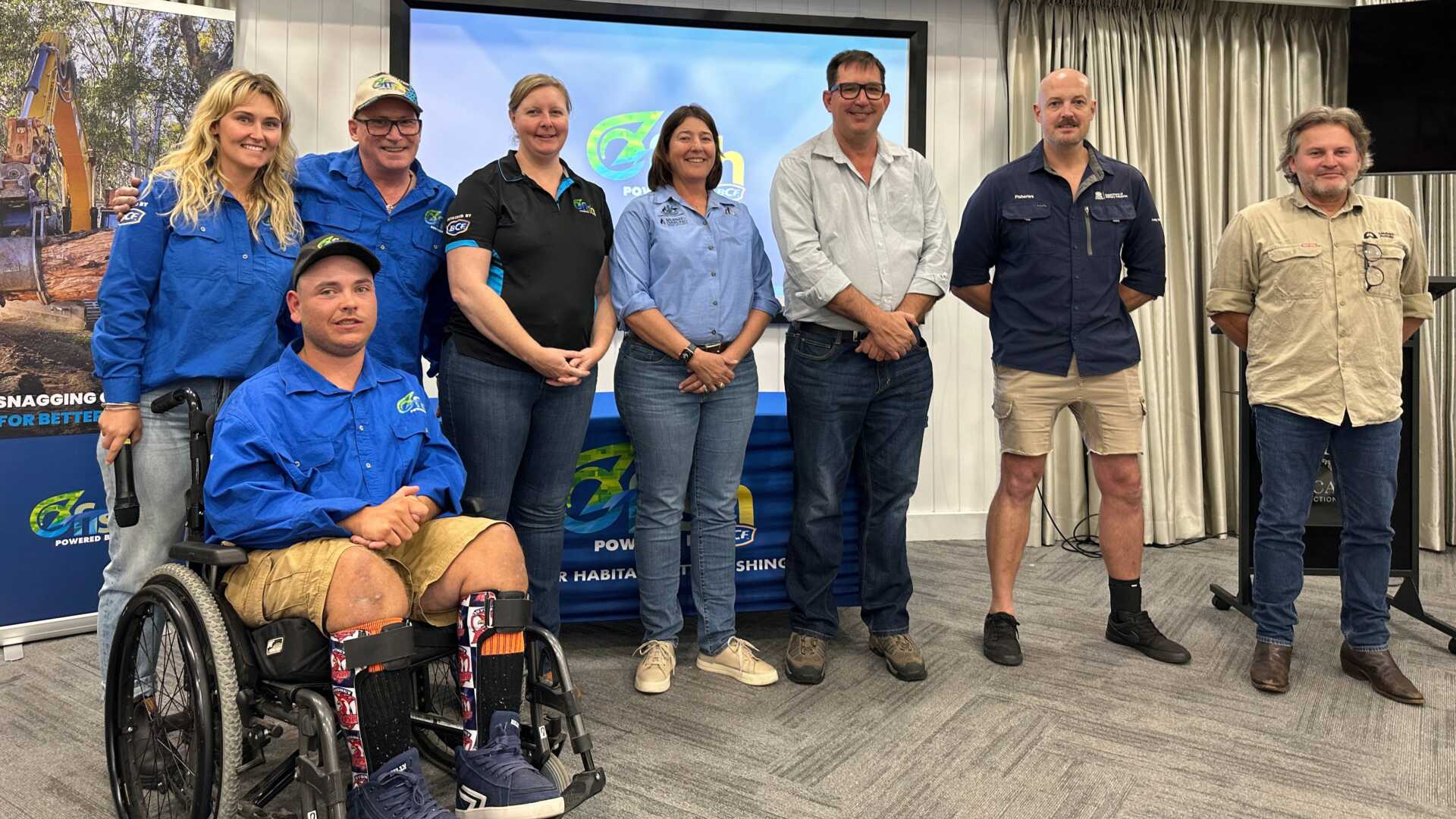
The Tamworth Fish Talks was a rousing success for the region with local community members hearing from a range of experts about how to deal with issues in their area, not only on how to catch fish but ensuring they have the habitat to thrive.
The project was funded by Landcare Australia through the Murray-Darling Healthy Rivers Program, the Australian Government through the CRC Program and BCF – Boating, Camping, Fishing and supported by NSW government, NSW Recreational Fishing Trusts and Commonwealth Environmental Water Holder, and the Murray Darling Basin Authority.
The forum was designed to help build capacity among the recreational fishing community and anyone interested in improving the health of rivers in this picturesque part of Australia.
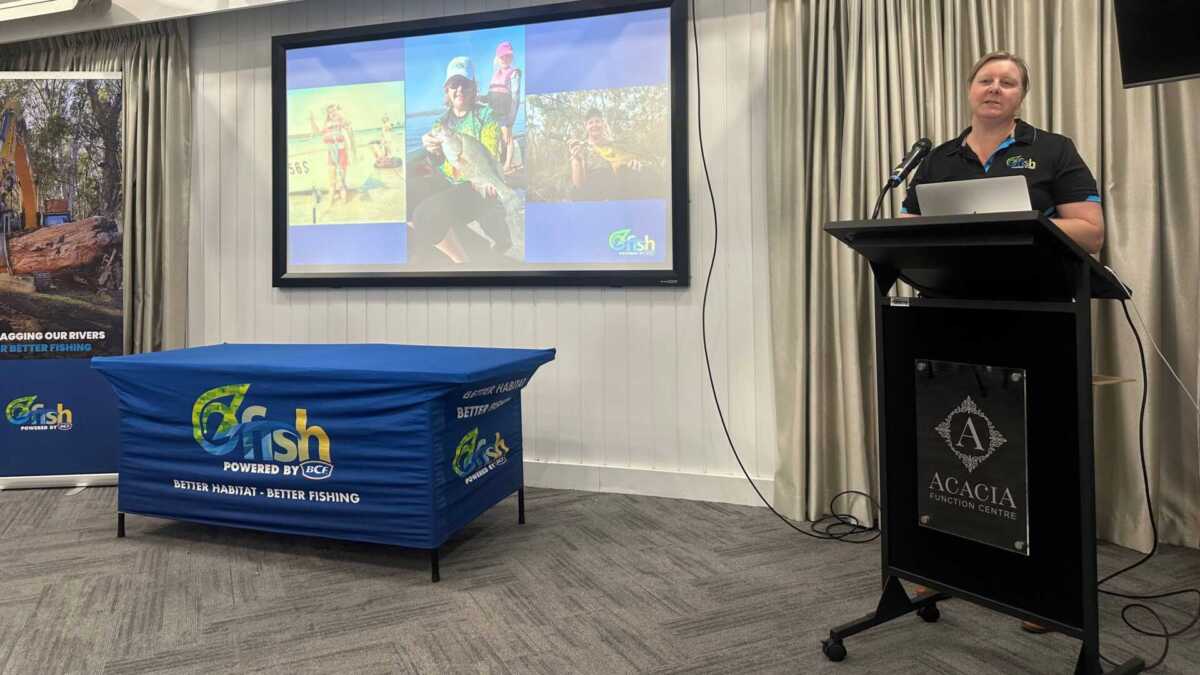
OzFish Director of Habitats Cassie Price opened the forum by sharing her insights on how to “Think Like a Fish” when trying to catch them. Ms Price recalled how her father told her this valuable advice when she was a young angler and it’s stood the test of time.
“The more that I learned studying fish in my career, the more I realised that it really does take your fishing to the next level,” she said.
“That level of understanding of where your fish live, how they behave, where they go, what are their habits, what and how they eat, means that you can choose the right gear, spot, and time.
“There’ll be fish that hide on their favourite snag when the wind blows a certain way or move upstream when the first cold change comes through.
“Restoring the places that are most important to our fish is what OzFish does.
“But there are so many things that we don’t know about fish, there’s a whole lot of things that science does not know and it’s actually fishos that are helping to change that.
“The people who understand their fish best, my message to you is to share that knowledge and talk to us about that information that you know because it might lead us to a discovery about that fish or get us to investigate something that we don’t understand.
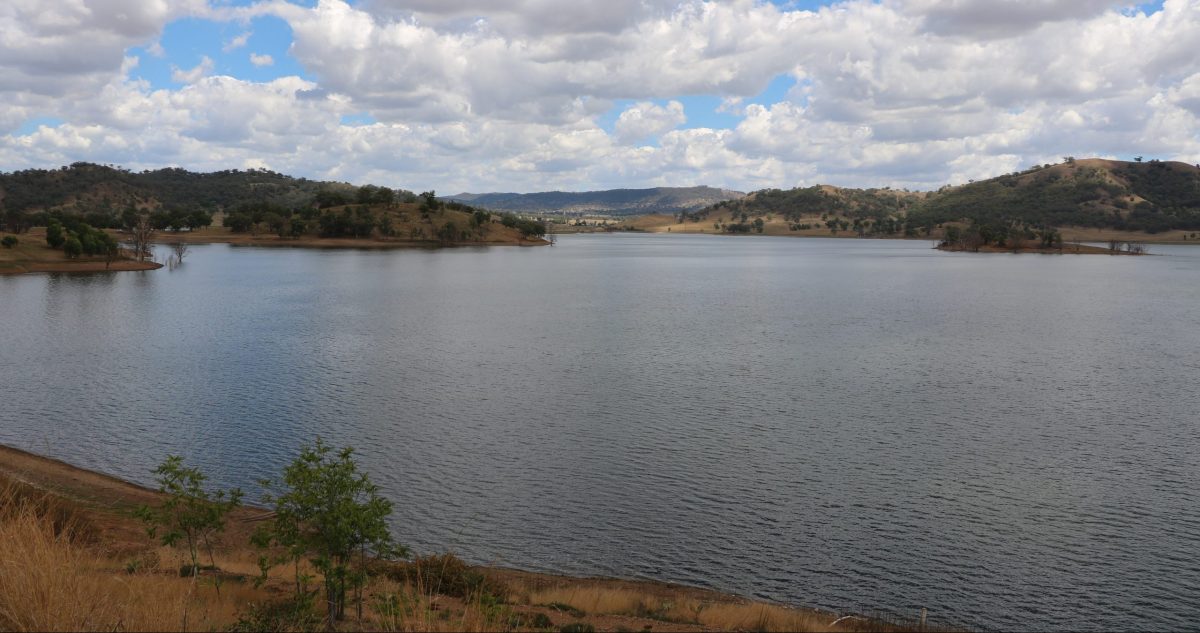
“There’s always more to learn and new discoveries being made in the science of fish.”
Commonwealth Environmental Water Holder – Northern Basin Greg Ringwood spoke about the importance of water management for the environment, and complementary measures such as re-snagging and identifying threats to native fish.
“The over-arching thing we’re trying to achieve for fish is improved population structures with regular recruitment, increased movement, expanded distribution and overall we want no loss of native fish species in the Basin,” he said.
“It looks like it’s going to be pretty dry in the next three months and probably the next couple of years and it looks like it’s going to be well above average temperatures.
“Going forward, we need to make decisions on how we use water for the environment to build resilience.
“We know that complementary measures work and we know if we continue to do nothing native fish populations will continue to decline. It’s well established that habitat restoration, water for the environment, fishways, irrigation screens, cold water pollution management, pest fish control, and stocking all can benefit native fish.
“The critical thing is if you do these things in a coordinated way. You might get a little bit of benefit out of one but if you do two, three or four you’ll get the cumulative benefits and that’s where you get the really good results.”
Daryl Albertson, a Senior Wetlands and River Conservation Officer with NSW Department of Environment, talked about managing water for native fish and how those principles are applied in the Gwydir River system and its boom-and-bust climatic environment.
“The river needs water and the fish, funnily enough, they need water, but it’s taken a long time for people to acknowledge that fish need water, which is pretty crazy,” he said.
“In the Gwydir, we’ve got a big portfolio of water. We can do a fair bit with it, not only in the wetlands but in the rivers.
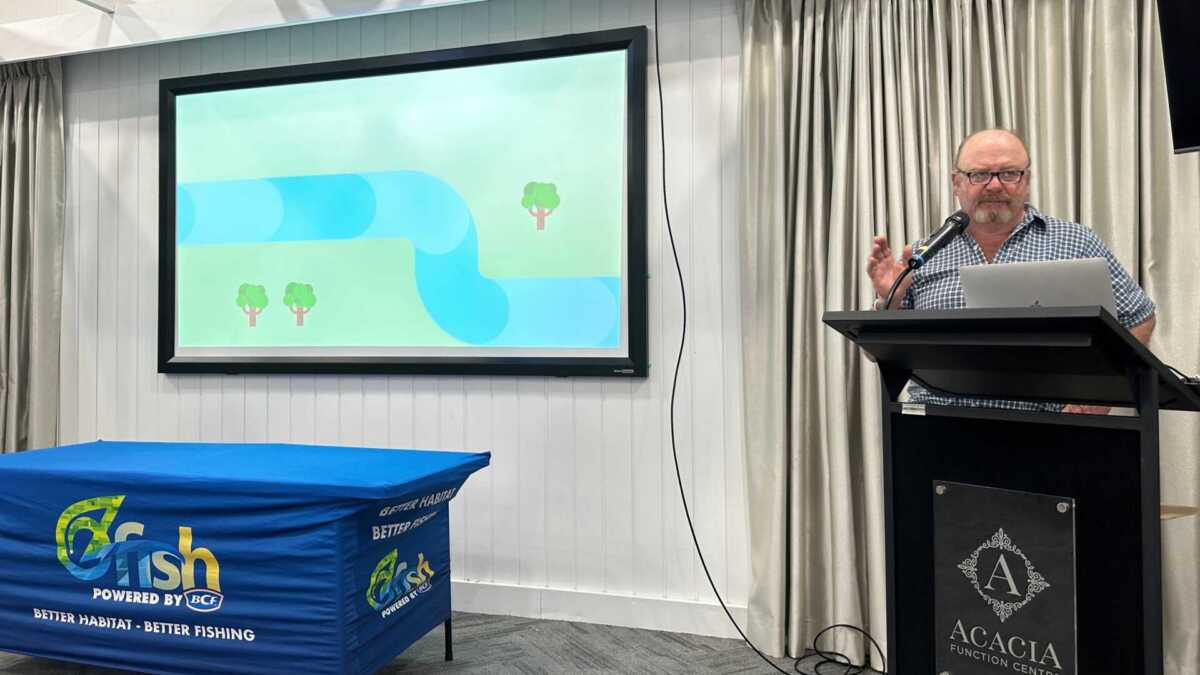
“We really know the system, how to deliver water in what we think is providing benefit to the aquatic environment.
“We don’t know everything about everything but the tendency is that we are on the right path, we are benefitting the fish and the aquatic environment by using environmental water and that’s why the public purse purchased the water.
“It’s actually being used effectively each year.”
Evan Knoll, NSW Department of Primary Industries Senior Fisheries Manager – Fish Passage, shared his knowledge of fish migration patterns throughout rivers and creeks. He spoke of the impact that man-made barriers have made to native fish and presented some solutions that enable fish to move freely to avoid predation, undertake spawning, and access key fish habitats.
“It’s not all doom and gloom. Based on our barriers to fish database, we put together a strategy of what we’re hoping to achieve over the next 20 years,” he said.
“What we are looking to do is basically open up fish passage all the way up our major tributaries to the major water supply dams.
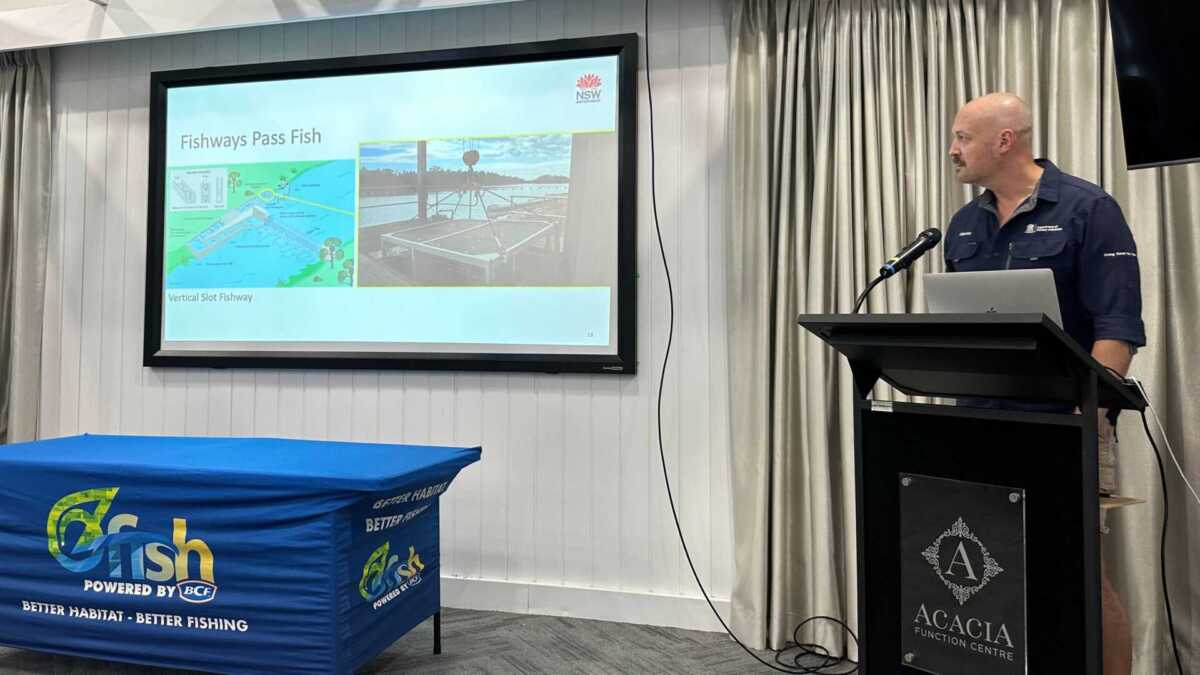
“There’s a whole heap of redundant structures across the state that have been there forever and a day. (Removing them) does represent the best option to remediate fish passage and productivity in our rivers.”
OzFish Program Officer Harry Davey spoke alongside one of his Northern Tablelands members, Joel Kiddle, about the charity’s three River Repair Buses and how they have been working alongside Traditional Owners on restoration projects.
“Because we are a volunteer organisation, we have a lot of rec fishers who like to come out and help and give their time,” Mr Davey said.
“Without them, our buses wouldn’t work – we wouldn’t be able to get the job done. It’s really cool when you pull into Moree and you see kids wave because they see the big green cod bus coming down the street. They talk about it everywhere.
“I’m not quite sure how many First Nations we’re working with at the moment but it’s great to see Indigenous knowledge is now being put on the bus and then brought out into the community, and then spread further.
Murray-Darling Basin Authority Regional Engagement Officer Annabelle Guest detailed how the organisation was working with local communities to achieve its goals.
This project has been funded by Landcare Australia through the Murray-Darling Healthy Rivers – an Australian Government Initiative, the Australian Government through the CRC Program and BCF – Boating, Camping, Fishing and supported by NSW government, Commonwealth Environmental Water Holder, and the Murray Darling Basin Authority.

